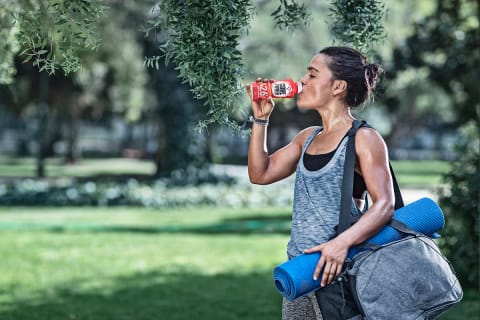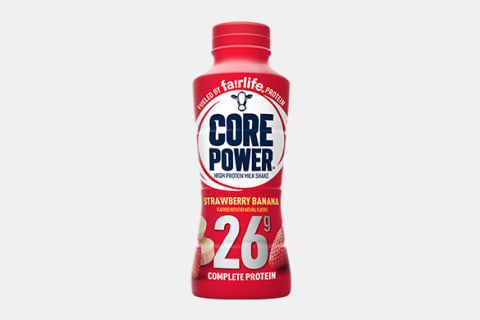Advertisement
Trouble Sticking To Your New Year's Resolutions? Here's What You May Be Overlooking

To the year 2021: We're ready for you. After nearly a year of taking it easy and just getting through each day in one piece, now is the time to reach higher, dig deeper, and set ourselves up for our most successful, most productive year yet.
As a personal trainer, I'm well aware that improving your physical fitness is one of the most common New Year's resolutions out there—whether it's to conquer your first triathlon, finally nail a crow pose, or you just want that one pair of jeans to fit better. Whatever your goal is, having a plan of action isn't just helpful—it's necessary. According to one study by the British Journal of Health Psychology, 91% of participants who wrote down a formulated plan of when and where they intended to exercise followed through on that plan.

For me, 2021's plan is to be more efficient with my workouts and movement patterns, and that starts with building more lean muscle. This new WFH routine has blurred the lines between work/life and life/life more than ever, so finding a moment to nourish my body with the stuff it needs can be a challenge. In 2020 I discovered Core Power—with 26 grams of protein per bottle, it's streamlined my entire routine by taking the time and effort out of meal prep. It's safe to say this RTD recovery drink is one of the few treasures from last year that I'll be taking with me (along with my wife's sourdough starter).
How to stay on track.
If you really want to make sustainable changes in your routine, "consistency" beats out "grit" every single time. One of the biggest motivators in sticking to a plan is seeing progress—whether it's seeing that mile time go down by a few seconds, doing two more reps than you did last week, or getting *that much closer* to touching your toes. But in fitness (and in life), you can't progress onto something greater until you've recovered from what you've already done. So regardless of what your goal is, a sound recovery routine has to be an essential part of it.
It starts with diet.
You should know by now that your recovery routine begins and ends with your nutrition. Nourishing your body with the stuff it needs to replenish itself is key to achieving your goals. And regardless of whether your goal is fitness-related or not, adequate protein consumption should be at the top of your priority list.
The Recommended Dietary Allowance (RDA) for protein is about 0.8 grams per kilogram of bodyweight. A common misconception I hear from clients is that only those who are regularly hitting the weights need more than this. Not so fast—increasing your protein intake can have major benefits1, even for those who lead a sedentary lifestyle. Not only does more protein help with recovery and repair, but it can also boost your immune system, prevent injury, and even reduce stress2. Sound like a recipe for progress? We think so too.
Why protein will help you hit your goals.
All this is to say, the primary benefit of increasing the protein in your diet is that it can optimize your recovery. I always say that the best pre-workout is a good post-workout, and that starts with repairing damaged muscles after physical activity. Studies show3 that post-exercise protein intake can increase protein synthesis (i.e., bonding your muscle fibers back together) for at least 24 hours afterward.
If you're like me, the last thing you want to do (or have the energy for) after a grueling workout is to meal prep. I keep my fridge stocked with Core Power (strawberry banana, most recently), not only because it's easy and accessible, but its tissue-repairing benefits are key to helping me build lean muscle.

Short On Time? Try This Personal Trainer's 5-Minute Full-Body Workout
Krista Stryker, NSCA-CPT

Short On Time? Try This Personal Trainer's 5-Minute Full-Body Workout
Krista Stryker, NSCA-CPT

Short On Time? Try This Personal Trainer's 5-Minute Full-Body Workout
Krista Stryker, NSCA-CPT

Short On Time? Try This Personal Trainer's 5-Minute Full-Body Workout
Krista Stryker, NSCA-CPT











